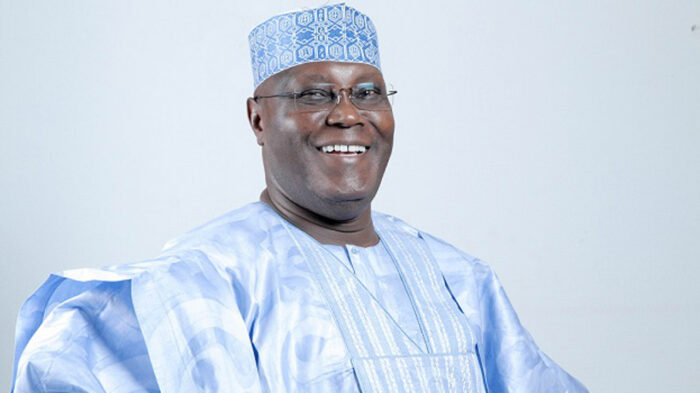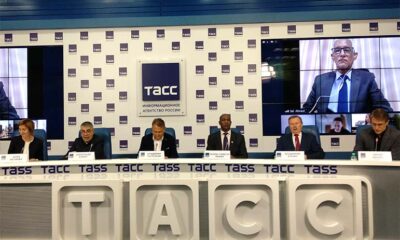Breaking News
After 6 Parties in 38 Years, Can Atiku’s Move to ADC Transform His 2027 Ambition?
Former Vice President Atiku Abubakar has formally joined the African Democratic Congress ahead of the 2027 elections. After decades, multiple parties, and repeated presidential attempts, analysts ask whether this new move will finally deliver his long-pursued dream. Here’s a full breakdown of Atiku’s political journey and the reactions trailing his defection.

Former Vice President Alhaji Atiku Abubakar on Monday formally joined the African Democratic Congress (ADC), the coalition-backed platform he has chosen ahead of the 2027 general elections.
His registration with the ADC—coming 130 days after resigning from the Peoples Democratic Party (PDP), where he twice contested for president—marks the sixth political party he has belonged to in a span of 38 years.
Now 79, and set to be 81 in 2027, analysts are questioning whether Atiku’s long-standing presidential aspiration will finally materialize as he enters the race as an octogenarian.
“A National Rescue Mission”
Atiku registered at his Jada 1 Ward in Adamawa State, describing the move as “the beginning of a decisive national rescue mission aimed at ending the misrule of the All Progressives Congress (APC).”
He said his transition to the ADC signifies the start of a strategic political realignment to unseat the ruling party, arguing that the country is experiencing a severe leadership and governance crisis.
Atiku insisted that the APC’s “rudderless leadership” has pushed Nigeria to the brink, urging citizens to rise above ethnic and religious divides and join “a national vanguard” committed to restoring stability and prosperity.
Oshiomhole Fires Back: “Atiku Can’t Fix Nigeria”
Reacting to Atiku’s defection, former APC National Chairman, Senator Adams Oshiomhole, dismissed his prospects, arguing that Atiku lacked the capacity to lead Nigeria.
“If Atiku, as a former vice president under PDP, could not fix the PDP… how can you lay claim to fix Nigeria?” Oshiomhole said during a Channels TV interview.
Atiku swiftly countered through a statement issued by his Senior Special Assistant on Public Communication, Phrank Shaibu, accusing Oshiomhole of “weaponizing noise to mask the catastrophic failures” of the APC.
Shaibu argued that Oshiomhole had no moral standing to question Atiku’s leadership, asserting that the APC had collapsed party supremacy while turning state institutions into partisan tools.
Atiku’s Long Road Through Nigeria’s Political Landscape
Although widely recognized for his role as Vice President between 1999 and 2007, Atiku’s political journey dates back to the early 1990s. He served as National Vice-Chairman of the People’s Front of Nigeria (PFN) in 1989 and was part of the Constituent Assembly that drafted a new constitution.
In the early 1990s, Atiku contested in the Social Democratic Party (SDP) presidential primaries but stepped down for Chief M.K.O. Abiola at the request of his mentor, the late Shehu Musa Yar’Adua.
His Multiple Political Crossings
PDP Era and Vice Presidency (1999–2007):
Atiku became Adamawa State’s governor-elect in 1999 before being selected as Olusegun Obasanjo’s running mate. As Vice President, he chaired the National Council on Privatization and played a central role in economic reforms. However, tensions with President Obasanjo deepened over the 2003 primaries and the Third Term agenda.
1st Defection (2006):
He left the PDP for the Action Congress (AC) and ran for president in 2007.
Return to PDP (2009):
He rejoined the PDP and contested the 2011 presidential ticket but lost to Goodluck Jonathan.
Move to APC (2014):
Atiku joined the APC with the n-PDP bloc and sought the 2015 presidential ticket, losing to Muhammadu Buhari.
2nd Return to PDP:
Ahead of the 2019 election, he returned to the PDP, clinched the presidential ticket, but lost to Buhari.
Exit from PDP Again (2025):
In July 2025, Atiku resigned from the PDP, citing “irreconcilable differences,” and aligned with a coalition building around the ADC.
With this latest shift, Atiku has now left the PDP three times and changed party platforms five times since 1999.
What Next for 2027?
Supporters believe the ADC move is strategic and positions Atiku at the center of a major political realignment. Critics, however, question whether the new platform can propel him to victory after decades of near misses.
For now, whether Atiku can achieve his long-desired dream of leading Nigeria—or fulfil his promise of rescuing it from the APC—remains a matter only time will answer.
Opinion Nigeria News










